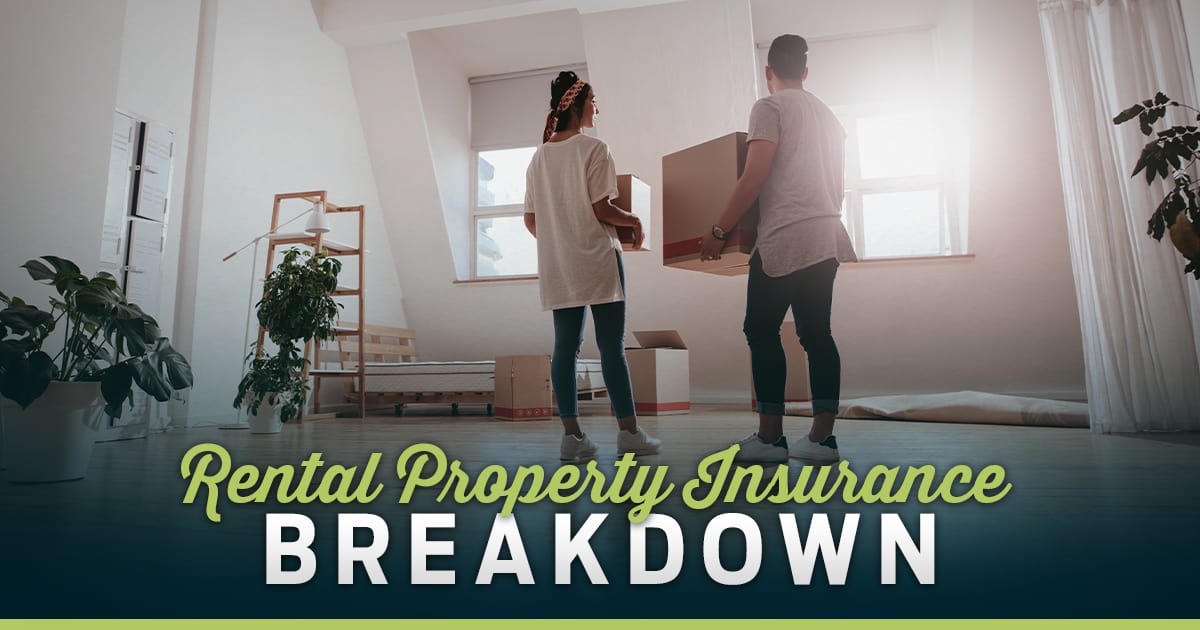
Rental Property Insurance Breakdown
June 14, 2022
Share:
In the “before time” (i.e, the time before the COVID-19 pandemic), you may have only known a handful of people to have a second, recreational property. Nowadays, it is more commonplace, what with many homeowners having decided to hunker down through quarantine in style. For the first time, many people were purchasing cottages – and many people were learning how different it is to insure a cottage over a regular residential property. On top of that, with COVID-19 restrictions lifting, many people are choosing to supplement their income by renting out their cottages.
Renting out your home or your cottage has additional insurance implications. While your home is expected to be almost always occupied, cottages may be left vacant for months at a time. How do you use your cottage? Do you rent it out sporadically or for several months? What times of the year do you rent it out? These are all important questions to have answers to when you are choosing to buy a cottage insurance plan. Your insurance provider will want to know exactly how your cottage is used, how often it is left vacant, and whether it is rented to other parties.
A word of note for cottage insurance –
Depending on your insurance provider, you may only be able to insure your cottage if your primary residence (your home, condo, or apartment) is already insured through that same provider. Additionally, you may have the option of including your cottage in your existing home insurance policy, naming it a secondary or seasonal location. Property insurance can also serve as a stand-alone policy.
In addition, cottages are considered to be of higher risk than regular properties due to the fact that they are occupied only sometimes. Cottage insurance is generally only offered as “named perils” over all-risk or comprehensive. This means that you will only have coverage for the items listed on your insurance policy. Certain risks that may result from part-time occupancies, like burst pipes or theft, may be more expensive to include on your policy.
You may end up paying higher premiums for cottage insurance.
As it stands, cottage insurance (or recreational property insurance) is often more expensive than your average home insurance. This is for a number of reasons, but the number one reason is that your cottage may only have part-time occupancy. As discussed above, part-time occupancy poses a number of risks – risks that are difficult to handle when your residential property isn’t occupied all-year-round. Leaks can worsen, pipes may freeze and burst, and vacant properties are much more appealing to thieves, vandals, and even squatters.
Additionally, cottages tend to be located in remote areas, which are much less accessible by emergency responders like firefighters and police. If something should happen – like a fire, a break-in, etc. – the chances for damages and loss are that much greater because an emergency responder cannot reach your cottage in time.
Certain risks, like sewer backup, flooding, and earthquake, which may or may not be available to purchase for your home insurance, are generally not available as options for cottage insurance policies. This can be due to the fact that cottages are often located near larger bodies of water, but also the fact that cottages are not occupied full-time, and issues can worsen with time.
Tips for reducing cottage insurance premiums
Lowering your cottage insurance premiums is much in the same way as it is to lower your home insurance premiums. See our list of tips for reducing your cottage insurance premiums while renting out your property to other parties:
- Install regular safety features, such as security cameras, burglar alarms, fire alarms, and backup generators. These will reduce your risk of larger disasters but can also qualify you for discounts.
- Purchase a first-aid kit so that your renters can use this in the event of injuries. If your cottage is near water, invest in a lifebuoy and life jackets to reduce your liability.
- Have Excalibur Insurance Group help you shop around for the best possible price.
- Store your watercraft and recreational vehicles so that renters cannot use them. This saves you from having to purchase additional coverage.
- If you use a home-sharing company to rent out, see if they offer insurance that is less expensive than what you would purchase directly.
For more tips on saving on cottage insurance, be sure to discuss it with our experts at Excalibur Insurance. We may be able to give you additional advice based on your circumstances.
Landlord insurance vs. cottage insurance
Landlord insurance is generally more expensive than cottage insurance, but it can be beneficial if you own more than one recreational property that you rent out or if you rent out your property through the entire year. Landlord insurance can offer liability coverage in the event of accidental injuries to renters using your property. Renting out your cottage can negate your protection for theft, both for your belongings and the belongings of your renters – but this is only true of cottage insurance or recreational property insurance, and a landlord insurance policy may be able to include coverage from various perils, including theft, vandalism, and coverage for your belongings and equipment that would not otherwise be covered by cottage insurance.
If you own only a single cottage that you rent out for a few weeks or a few months on occasion, landlord insurance may not be worth the additional cost. Instead, discuss with your insurance provider about short-term landlord insurance or extending your existing cottage insurance by purchasing recreational vehicle coverage (if applicable) or an umbrella liability insurance policy.






